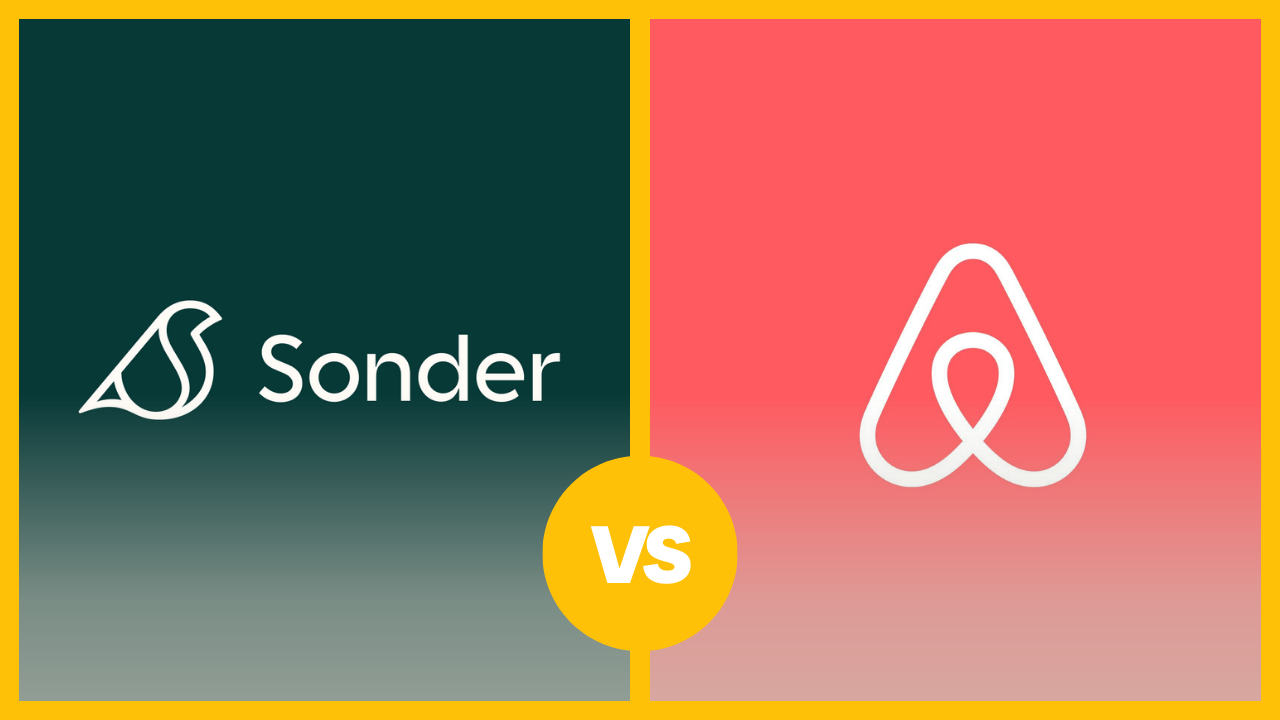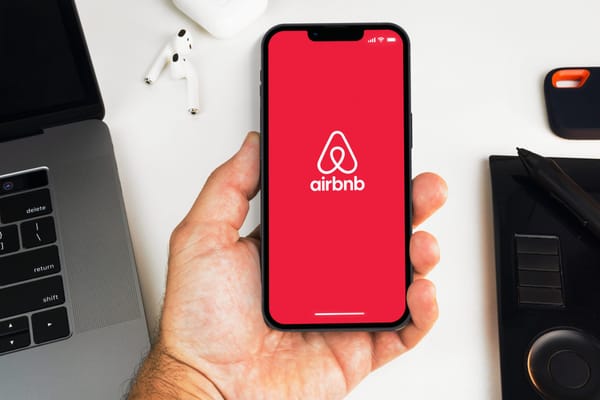Sonder vs. Airbnb: The Main Differences Explained

If you follow vacation rental news and developments, you will have come across Sonder. While the company’s target market does overlap with the audience that Airbnb is popular amongst, Sonder and Airbnb aren’t regarded as direct competitors.
These FAQs about the up-and-coming hospitality platform will give you a better understanding of where it fits into the picture. Sonder’s business model can also teach hosts and property managers a thing or two about how to set up a hospitality business that meets traveler trends and expectations.

A Brief Introduction to Sonder
Headquartered in San Francisco, Sonder’s story began in 2014 in Montreal, six years after Airbnb was launched. Co-founder Francis Davidson, a McGill student at the time, started by experimenting with different business models. He, for example, greeted guests with wine and offered a type of valet service.
These earlier experiences helped him to shape Sonder’s goal — to redefine the hospitality industry by offering guests exceptional stays. Sonder stays combine elements of hotels and vacation rentals. They strive to offer more reliable service delivery than Airbnb listings, while at the same time surpassing hotel stays in terms of freedom offered. The result — accommodation that pays more attention to service without guests losing their sense of independence.
Fast-forward nearly a decade since Sonder launched and they’ve expanded their presence to over 40 cities across 10 countries. Sonder operates about 9,000 units currently in popular tourist destinations like: Montreal, Dubai, London, San Diego, New Orleans, and New York. They’ve also recently added new properties in France, Italy, and Spain and plan to add more cities to their portfolio as they continue to create remarkable, yet affordable, spaces.
Which Rental Types Does Sonder Offer?
Rental types are one of the biggest differences between Airbnb and Sonder. Unlike Airbnb, Sonder doesn’t include any shared units or shared rooms.
Sonder offers only entire, private units that are typically located in bigger buildings. The selection is also much less unique than Airbnb’s offering and is restricted to condos, apartments, rooms, suites, and villas.
They also partner only with a select few including hotel owners, private equity funds, real estate investment trusts, and entrepreneurial developers. This means that individual hosts are excluded, another main difference.
The partnership is also more formal. They will enter into multi-year fixed leases or mixed leases. As such, they essentially “own” their own vacation rental properties.
Which Type of Traveler Does Sonder Attract?
Sonder’s target audience is much more specific than that of Airbnb. Airbnb is popular among anyone from digital nomads to families with children.
On the other hand, Sonder targets travelers who look forward to hotel-like amenities but would prefer not to book a traditional hotel room.
That said, as both platforms prioritize technology and design, they both find favor among Gen Z and millennial travelers.
Who’s Responsible for Property Management?
Here’s another major difference between Sonder and Airnb short-term stays. Sonder owns and manages all the properties. This means that they don’t use the hosting business model used by vacation rental platforms like Airbnb and Vrbo.
They take this approach so that they can ensure consistency and maintain the high level of service that sets them apart. To help them achieve this, they have a guest services team that’s available round the clock. You can think of it as a virtual concierge service. If a guest needs to report any issue during their stay or require some help, all they need to do is reach out to this team via the Sonder app or website.
If one of their staff needs to enter the vacation rental, they’ll first get permission before they enter. However, guests don’t need to be present but if they prefer to be there, they can request that the guest service team member come at a certain time.
How Do House Rules Work?
Here’s another example of where Airbnb and Sonder differ, albeit not that much. Both Airbnb and Sonder have house rules in place that guests need to agree to. However, where Airbnb hosts are allowed to set their own house rules, all Sonder apartments and hotel rooms have the same house rules.
For example, all properties have the same check-in and checkout times. While the checkout time is similar to what most Airbnb hosts set in their rules (11 a.m.), the check-in time is only after 4 p.m., which is slightly later than the general check-in time for Airbnb rentals.
Examples of other house rules included in Sonder’s Ts and Cs are:
- No smoking (not even outside on a terrace or balcony)
- No events or parties
- No pets
- No noise after 9 p.m.
Which Amenities Do Sonder Apartments Typically Include?
Sonder guests can look forward to the same comforts they would typically have at their home during their stay. All their properties are fully stocked and the following amenities are included in all Sonder stays:
- Toiletries
- Fresh towels
- Kitchen essentials
- Wi-Fi
- Tea and coffee
- A limited number of laundry and dishwasher pods
- Luggage storage options for guests arriving before check-in or wishing to explore the neighborhood further after checking out.
Guests can also request special amenities like a pack-and-play or noise machine.
Parking options vary. Guests who need parking can use filters to refine their search to properties that include parking.
Unlike most Airbnb listings that restrict their cleaning service to before check-in/after checkout, Sonder gives guests the option of booking housekeeping services during their stay. This service is available for a small fee and can be booked via the Sonder app.

Sonder vs Airbnb: Which Reigns Supreme?
As Airbnb and Sonder are different in so many ways, there’s no winner in the Sonder vs. Airbnb comparison. Where Airbnb actively searches for accommodation providers to list their vacation rentals on their site, Sonder is an accommodation provider themselves and has their “own properties”.
A contactless service, like seamless check-in via its app, puts it one step ahead of Airbnb in terms of tech adoption. Also, as Sonder properties are typically located in larger buildings, guests can also have access to other on-site amenities like a gym.
While your typical Airbnb listings might lag behind in cool tech features, they attract much more website traffic. Where the Airbnb website generates over 100 million monthly visits, Sonder’s website doesn’t even cross the one-million mark.
That being said, you don’t need to rely on Airbnb or Sonder to attract leads. With a tool like iGMS vacation rental software, you can create your own website for direct bookings in a matter of minutes. It’s a popular alternative to individual hosts who aren’t eligible to partner with Sonder, yet don’t want to share their revenue with Airbnb. iGMS can also help with:
- Managing multiple accounts and listings on the top OTAs from a single interface
- Synchronizing reservations across multiple platforms to eliminate the risk of double bookings
- Organizing messages into a single feed with a unified inbox
- Improving communication with automated templates and triggered messaging
- Creating and coordinating cleaning tasks with live tracking to completion
- Creating your own direct booking website
- Adjusting your pricing in a smart way through integrations with PriceLabs, DPGO, and Wheelhouse
- Automating the process of guest reviews







